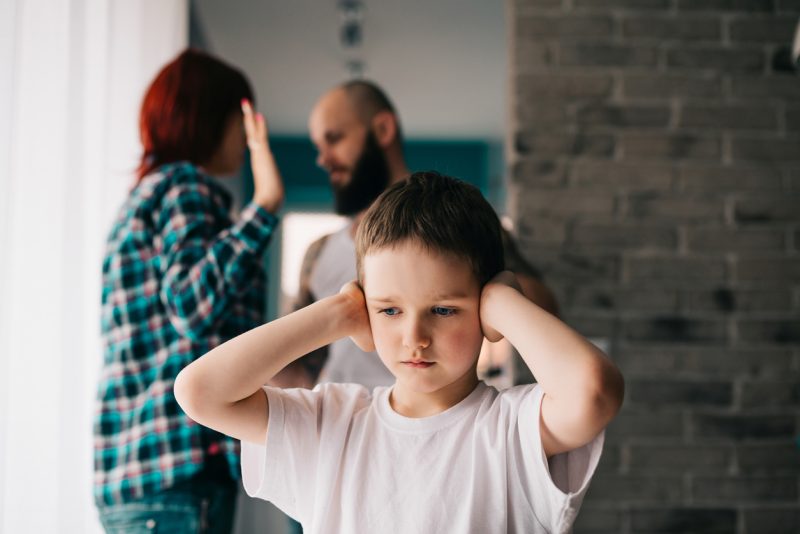Do you remember the first night after separation or divorce when your child stayed over with you?
 I was a little nervous, I just had to step up , plan and ensure it all worked. I very quickly got in the swing of things and it worked out well. The rest is history!
I was a little nervous, I just had to step up , plan and ensure it all worked. I very quickly got in the swing of things and it worked out well. The rest is history!
Some of the initial scary thoughts that ran through my head were catering for breakfast, lunch and dinners every day, planning activities and going to the toilet whilst we were out? This all was now all up to me, no sharing any more, just me. I felt I grew up quickly because my desire to care for my child outweighed the hard work that I knew lay ahead of me. I’m not sure but I think it was a mix of perspiration and desperation that got me through, I got used to planning and preparing then we were off and running.
I can’t help but think some mothers would experience the same scary thoughts, for many Dads like me, we could never talk about that, too busy hating each other.
There is definitely something empowering and rewarding when you know you have managed your access days well. You get better at everything, you start to get a repertoire of recipes, you know what size clothes and shoes they wear. You know their taste in music, books and movies, you share laughter together and one on one time, you understand morning routines and of course all the hissy fits that goes with it. The sense of owning that space feels good even if it is only every second weekend.
 When we were out and about, and it came time to take her to the toilet or maybe I needed to go? she came with me and simply buried her face into my shoulder when we walked through the mens to the cubical, Always a good time to try and get them to go too, even if they don’t feel like it. When she was big enough to go on her own, I would stand near the door of the female toilets and didn’t move until she came out. The wheel chair access toilets are gold!!
When we were out and about, and it came time to take her to the toilet or maybe I needed to go? she came with me and simply buried her face into my shoulder when we walked through the mens to the cubical, Always a good time to try and get them to go too, even if they don’t feel like it. When she was big enough to go on her own, I would stand near the door of the female toilets and didn’t move until she came out. The wheel chair access toilets are gold!!
😂 I remember we were at the swimming centre one day when I walked into what I thought was the mens change room and proceeded to help my daughter change into her bathers, when a women in a towel came out of the showers 😱 For a few seconds I really thought she was the one in the wrong change room. Then she said “I think you are in the wrong room” I apologised and left, honest mistake but laugh every time I think about it.
Do you have experiences that you can share?

 30 years ago it was common place in a heterosexual relationship for the female to do all the housework, cooking and parenting of the children. The male was responsible for earning money and mowing the lawns.
30 years ago it was common place in a heterosexual relationship for the female to do all the housework, cooking and parenting of the children. The male was responsible for earning money and mowing the lawns. When I was a single dad and sharing responsibility of my daughter 50/50, I experienced first hand everything required to run a functional home. I combined work and nurtured all the needs of my child all at the same time, it’s not easy but the benefits out-way the hard work. It’s constant, often starting as soon as the kids open their eyes (and sometimes before).
When I was a single dad and sharing responsibility of my daughter 50/50, I experienced first hand everything required to run a functional home. I combined work and nurtured all the needs of my child all at the same time, it’s not easy but the benefits out-way the hard work. It’s constant, often starting as soon as the kids open their eyes (and sometimes before). Having a partner and sharing the household jobs and parenting is much easier than having to do it all by yourself. Don’t make your partner feel like a single parent. Be an ‘All In’ dad and make life great for all of you. The rewards are fantastic and you will have a much happier relationship and family life will be more relaxing.
Having a partner and sharing the household jobs and parenting is much easier than having to do it all by yourself. Don’t make your partner feel like a single parent. Be an ‘All In’ dad and make life great for all of you. The rewards are fantastic and you will have a much happier relationship and family life will be more relaxing.


























Dinner conversations with Dad
Remember all families have been through good and bad times. There were many years before you were born that your Dad had a life probably very different to the life we all have today. Find out, you might be pleasantly suprised.
Experience, Knowledge and History
Through it all there is a wealth of experience, knowledge and history that can be explored with pre-thought crafted questions to get the conversation started. Good questions can be fun and they can also help create bonds and show that there is something larger that themselves.
Below are questions that could be written/printed onto cards and taken to your next family dinner, or even on your next zoom call if you don’t catch up for dinners? Its a good idea to pre-warn your dad so that they can weave their answers to demonstrate that they have travelled a road that has had pebbles and rocks but in the end it worked out through good decision making to show the younger generation listening that you have resilience and come through it well or at least ok.
Table Questions:
Making dinner party memories is easier than you thought, try some more questions here: 40 more dinner table questions
If you’re still lucky enough to have your Grandfather or Grandmother in your life, the answers to their question may be very different to those of your Dads.
Why don’t you write them out onto cards and bring them along to your next dinner and learn a little more about your dad or grandad? Share your experience below, we would love to hear how it went. Did you learn something you never knew? Something insightful or suprising?